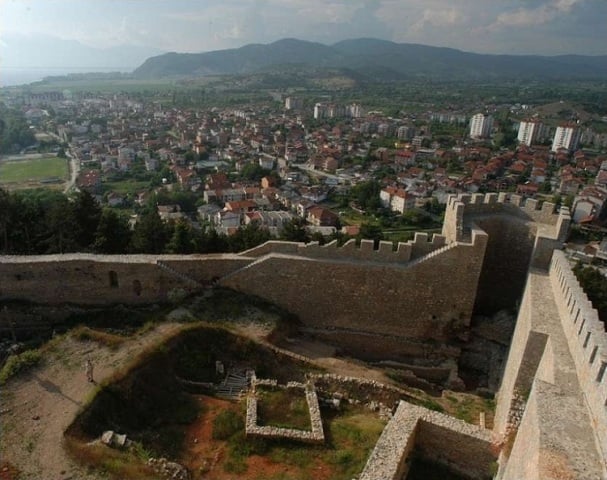The Republic of Macedonia recently gained liberation from the federation of Yugoslavia. Check out some interesting and fun facts about Macedonia.
Facts About Macedonia
A newly declared independent country, ‘Republic of Macedonia’ peacefully broke away from the clutches of the Yugoslavian territory on September 9, 1991. This landlocked sovereign nation has an area of 25,333 sq km. Rich in history, the territory that is now Macedonia features in numerous significant landmarks from the national awakening of the ethnic Macedonians to their participation in the Second World War. In 1999, the Kosovo crisis spurred unanticipated turbulence and accumulated around 300,000 refugees within the Macedonian terrain. NATO encouraged a truce between the ethnic Albanian and Macedonian sides until a series of ratified constitutional changes and amnesty laws promulgated by President Trajkovski extinguished the raging fires. Credit for this aesthetically appealing country’s stability goes to the European Union that urged Macedonia to crack down on corruption and achieve the legislative agenda of the ‘Ohrid Framework Agreement’ which terminated the 2001 ethnic Albanian uprising. Delve deeper into the rollercoaster ride endured by inhabitants of this country and several interesting facts as you scroll down this article.

- Macedonia is a landlocked country that shares boundaries with Serbia, Albania, Bulgaria and Greece.
- Macedonia is one of the successor states of the former Yugoslavia, from which it gained independence in 1991.
Macedonia became a member of the United Nations in 1993 but due to a dispute with Greece over its name it was admitted under the provisional reference of the former Yugoslav Republic of Macedonia (FYROM). - Macedonia has a population of around 2,072,086 people according to estimates in July 2010.
- Summers and autumns are usually warm and dry, while winters are relatively cold with heavy snowfall.
- Macedonia was the only country to secede from the Yugoslav federation without wreaking havoc and violence.
- A 2002 Census reveals that 64% of its population are Macedonian, 25% Albanian, 4% Turkish, 3% Roma, 2%, Serb, 0.5% Bosniaks and 0.5% Vlachs.
- Christianity and Islam are the dominating religions in this country.
- Clothing, iron and steel classify as the nation’s main exports and the largest sources of annual revenue.
- Macedonian, Albanian, Turkish, Serbian, Vlach, and Roma are the common languages spoken.
- Internal Macedonian Revolutionary Organisation – Democratic Party for Macedonian Unity (VMRO-DPMNE), Social Democratic Union of Macedonia (SDSM), Democratic Party for Integration (DUI) and Democratic Party of Albanians (DPA) are some of the major political parties in Macedonia.
- Macedonia is famous for mouth watering dishes such as Musaka, Tavèe-Gravèe, Kebapi and Ajvar which is a bell pepper spread.
- The parliament approved legislation giving ethnic Albanians greater local autonomy in their predominant zones and redrawing local boundaries.
- Macedonia contained around 900,000 internet users by July 2008, around 44 percent of the population.
- As a small and open economy, Macedonia stands vulnerable to economic developments in Europe and hence still remains dependent on its Europe Union (EU) membership for continued economic growth.
- The collapse of Yugoslavia had negative effects on Macedonia as it ended transfer payments from the central government, eliminating benefits from inclusion in a de facto free trade area.
- Parliamentary elections are held every four years, when the Prime Minister is elected. The President of Macedonia is elected for a five-year term.
- Macedonia’s fauna is rich and includes exotic bears, chamois, foxes, wolves, squirrels and wild boars.
- Republic of Macedonia in the south borders the region of Greek Macedonia due to which Greece raised mayhem over possible territorial aspirations and historical associations of Macedonia with selective Greek region history.
- Public TV in Macedonia has three national channels that face stiff competition from private networks.
- Macedonia has maintained macroeconomic stability with low inflation, but it has so far lagged the region in attracting foreign investment and creating jobs, despite making extensive fiscal and business sector reforms.
- Alexander the Great, a member of the Angread Dynasty and a pivotal fixture in ancient history hails from the land of Macedonia.
- A long lasting dispute with Greece over the country's constitutional name and flag hindered economic growth until 1996.
- Skopje, the capital city of Macedonia is a common tourist attraction especially for its affluent heritage, popular markets and dazzling monuments.
See also
More from iloveindia.com
- Home Remedies | Ayurveda | Vastu | Yoga | Feng Shui | Tattoos | Fitness | Garden | Nutrition | Parenting | Bikes | Cars | Baby Care | Indian Weddings | Festivals | Party ideas | Horoscope 2015 | Pets | Finance | Figures of Speech | Hotels in India : Delhi | Hyderabad | Chennai | Mumbai | Kolkata | Bangalore | Ahmedabad | Jaipur
- Contact Us Careers Disclaimer Privacy Policy Advertise With Us Lifestyle Sitemap Copyright iloveindia.com. All Rights Reserved.







